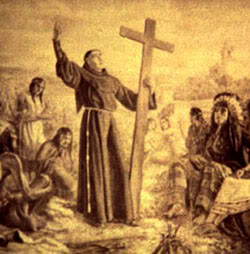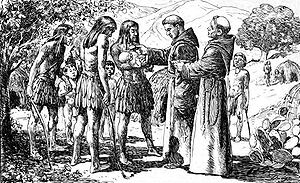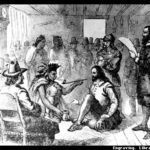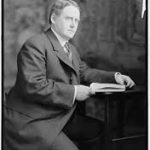Settlers to the New World had a lot to mull over when they discovered that the land they had discovered was already inhabited. What rights would these inhabitants have, since colonists did not consider native peoples to be as advanced as European citizens? (See last post.) Could Europeans feel justified in sweeping in to do whatever they wanted in this new territory? Or, did the native peoples have inalienable rights that even so-called “superior” civilizations had to acknowledge?
In 1537, Pope Paul III made a proclamation to the rulers of Europe in his Bull Sublimis Deus, which stated: “We, who, though unworthy, exercise on earth the power of our Lord . . . consider, however, that the Indians are truly men and that they are not only capable of understanding the Catholic faith, but, according to our information, they desire exceedingly to receive it.” The proclamation further stated, ” . . . the said Indians and all other people who may later be discovered by Christians, are by no means to be deprived of their liberty or the possession of their property, even though they may be outside the faith of Jesus Christ . . . nor should they be in any way enslaved; should the contrary happen, it shall be null and of no effect.”
This proclamation should have made all the difference in the way Native Americans and newcomers interacted; unfortunately, its intent was continually subverted.
______________________________________________________________________________________








